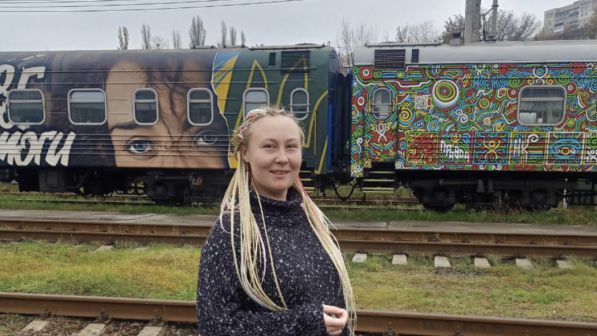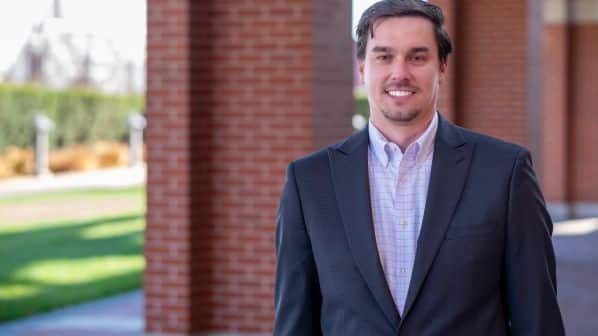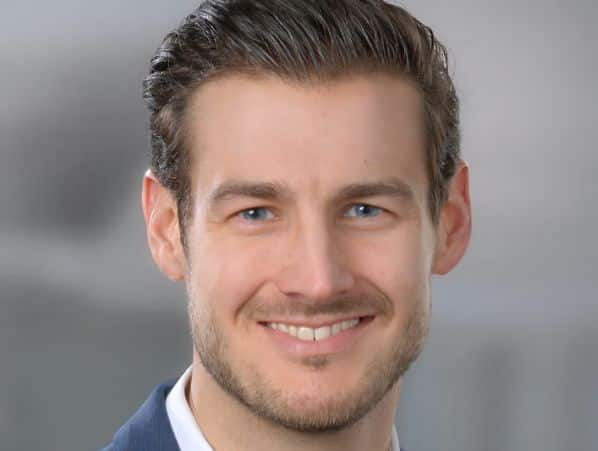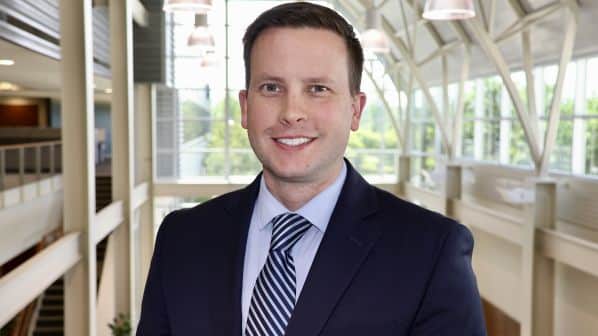THE global rail industry is experiencing two concurrent human resources challenges: the impending retirement of a significant proportion of its experienced and knowledgeable workforce; and an ongoing battle to secure a new generation of talent versed in the digital skills the sector requires to progress.
Losing years of experience and industry know-how could set the sector back by many years just when it is under pressure to get more trains onto track. Rail also has a reputational issue. It is often perceived as a dirty and dangerous working environment that is not particularly innovative, meaning attracting the most talented people is proving difficult.
Scratch below the surface of these perceptions and you find a growing cohort of talented and highly regarded young people who are doing remarkable things. In IRJ’s second Young Rail Leaders Award we aim to bring many of these individuals to light by telling the stories of their careers and most noteworthy experiences.
Our 16 award winners work in a variety of roles across the industry - from project management and track engineering to advanced signalling and digital technologies - in all corners of the world. All of our award winners are below the age of 40 and many look well placed to become leading figures in their respective companies in the years to come. We hope that bringing their work to the industry’s wider attention will support their progress in some way and also inspire others to follow in their footsteps.
Don’t see your colleague on our list? Don’t worry, we plan to run the initiative again in 2024. Also keep an eye out for nominations for our Women in Rail Award, which we will feature next June.
Kateryna Izmailova
Head of Social Policy, Ukrainian Railways
Age: 36. Years in the industry: 12
UKRAINE’s national railway has experienced significant hardship since the Russian invasion of 2022. However, the enduring spirit of its employees helped Ukrainian Railways (UZ) to successfully support the evacuation of thousands of people in the early days of the conflict, and to keep the railway operational as the war has continued, despite ongoing damage to infrastructure and assets.
Kateryna Izmailova has played an active role in helping to evacuate Ukrainian citizens by rail to safety during the early weeks of the conflict. She helped coordinate efforts to provide food to passengers and conductors onboard trains while also supporting the movement of humanitarian supplies into the country. In addition, she supported efforts to provide meals to employees during the lockdown in Kyiv and to equip workplaces with bomb shelters.

As the war progressed, Kateryna was the initiator of the “Return to the Iron Family” project, which involves retraining employees injured during the war and adjusting the workplace so it is suitable for them to return to work. UZ has provided psychological support for the veterans. UZ is working to train its own personnel as well as full-time psychologists to undertake this work.
An example of an employee that has been through the Return to the Iron Family project is Andriy Sobkovskyi, a 22-year-old who tragically lost his legs after a Russian rocket hit the barracks in which he was staying. He was found 12 hours later, still alive under a pile of rubble. Sobkovskyi was discharged in September and went on sick leave from UZ. As he was unable to continue his work as a train conductor, and with UZ not wanting to leave him unsupported, Kateryna says the decision was taken to requalify Sobkovskyi as a dispatcher, with the possibility of working remotely. “I went to his hospital, prepared the documents and helped to organise his training,” Kateryna says. “These types of cases soon became more common so we decided to turn it into an official programme.”
Kateryna has also been a key representative for UZ employees. As the head of the Youth Council of the Trade Union of Railway Workers and Transport Builders of Ukraine she has fought tirelessly during negotiations to reinstate suspended payments for workers, particularly younger employees.
Kateryna says her career objective is to continue to campaign for fair wages, to end discrimination in the workplace, and for fair interactions between colleagues. She is credited with using critical thinking to overcome challenges, taking her time before making sound and consistent decisions, for being comfortable with leading negotiations and adept at identifying partners to implement ideas.
“You can come to her with any request and she will find a way to process it and help you,” her nominator writes. “Kateryna is the kind of person who will always find a way out of any situation. She made her way from being an ordinary employee to the head of her department. She enjoys respect among her colleagues and management listens to her. She is a courageous and purposeful person.”
Darin Shelor
Senior Director, Advanced Train Control, CPKC, United States
Age: 36. Years in the industry: 13
THE rollout of Positive Train Control (PTC) as a universal signalling and train control technology was perhaps the defining achievement for US railways in the 2010s. It is also providing the foundation for future technological advance, including at Canadian Pacific Kansas City (CPKC), where Darin Shelor, is playing a key role.
PTC has been a consistent presence throughout Darin’s 13 years with the railway. Indeed, he says “it is surreal to think how deeply I now understand a field I never imagined being part of.”
Darin’s journey with PTC began following his selection to contribute to various important PTC initiatives in the early years of his career, including being part of the team responsible for implementing one of the first PTC-equipped railway subdivisions in the country.

Building relationships throughout the railway was a key part of the successful delivery of the PTC projects on which Darin has worked. He has worked closely with signalling teams to install hardware and software; with network operations centres to coordinate implementation; with track crews and inspectors to coordinate and validate installation; with suppliers to deploy new software; with back-office teams to validate PTC; and with other railways to deliver seamless integration and compatibility.
Darin says there was early recognition in the PTC programme that despite often being competitors, everyone was united by a shared understanding that “we were, and still are, in this together.”
Darin has continued this spirit of collaboration in his work at the railway, including in his transition to a senior leadership role. He attempts to foster an environment of high standards: he says he will not ask his team to perform a task that he would not do himself. This approach ensures that everyone is committed to delivering exceptional results and upholding the integrity of PTC, according to his nominator.
Darin’s transition to a leadership role coincided with the start of the Covid-19 pandemic. While always valuing face-to-face interaction for building collaboration, he successfully managed to replicate this in a remote working environment, developing practices that were rolled out across the railway. In addition, Darin’s recognition of the importance of metrics has driven high levels of success in PTC by effectively identifying accomplishments and areas for improvement.
“By leading by example and promoting a shared sense of responsibility, Darin and his team have achieved and sustained success with our train control systems,” his nominator states.
Darin’s infectious leadership style also played a crucial role in the success of the merger to create CPKC
Among current PTC projects are the introduction of “self-healing” technology, proactive monitoring, and integrating IT solutions that directly translate into business time savings. PTC is not standing still, and Darin believes his team possess the necessary skills and resources to deliver CPKC’s future safety and operational initiatives. This includes pushing the boundaries of the train control technology and potentially opening new possibilities for the railway of the future, in which Darin is well placed to play an influential role.
Christoph Seffrin
Project Director, Siemens Mobility, Germany
Age: 39. Years in the industry: 12
THE new ICE 3neo is a central component of German Rail’s (DB) future long-distance fleet. DB signed a framework contract with Siemens Mobility for 90 of the multi-system, 320km/h trains in July 2020, initially ordering 30 eight-car sets and placing further orders for another 43 in January 2022 and 17 in May 2023. The first four class 408 trains entered service on time in December 2022, a major achievement for Siemens Mobility, which describes the order as one of its largest ever industrial projects.
The person responsible for overseeing the programme is project director, Christoph Seffrin. Christoph has worked in various high-speed rolling stock project management roles during his 12-year career with Siemens Mobility. The ICE 3neo, however, was his first as project director.
Christoph says he has followed the typical career path for a project manager at Siemens Mobility, beginning as a sub-project manager, where he was responsible for one area of the train, before taking a major step up to become deputy project director for the ongoing ICE 4 project to supply 137 trains to DB in 2016. This project was delivered by Siemens Mobility and Bombardier (now Alstom) as a major subcontractor. Christoph worked on it for three-and-a-half years and was responsible for the Bombardier element of the project, for change management, the entire production side, and supplier management.

“I had time to learn what is important in a big project like this,” he says. “Especially of how to work with DB and also working with Bombardier. As you can imagine, it’s not always easy when you have to work so closely with one of your competitors. I really learned a lot, including how to solve conflicts and how to manage critical situations.”
Consortium projects are always very challenging. Especially when the share of scope between both parties is very large. He says effective communication was essential to overcome this challenge as a well as good understanding of each other’s situation - he spent a lot of time at Bombardier’s bodyshell production site in Wroclaw, Poland, which was specifically set up for the project. “There was a definite learning curve,” he says. “It gave me a lot of insight of how to manage what is important at these types of production sites.”
Christoph was approached to work on what would become the ICE 3neo project as Siemens Mobility was reaching the conclusion of the tendering process in February 2020. Yet there was one caveat: the strict delivery schedule of just two-and-a-half years, the fastest-ever for a Siemens high-speed train project.
The train is based on the Velaro D (ICE 3), a project that suffered some technical problems and delays. While some doubted whether the ICE 3neo project could be done in such a short time, Christoph says his familiarity with this train platform and understanding of what went well and not so well previously gave him the confidence to take up the challenge.
If the strict delivery timeframe was not enough, the project was finalised and commenced in mid-2020 at the height of the Covid-19 pandemic, requiring a total rethink of how a project of this scale could be managed and delivered effectively. Christoph says he focused management on three key elements: his team; the customer; and the train.
For his team, he says he had the freedom to choose who he wanted to work alongside, selecting people he trusted from previous projects. He also chose to focus their efforts on the December 2022 deadline. “It was very simple, very transparent. It doesn’t matter if you’re at home online, we have this one goal,” he says. “It was also important to acknowledge and celebrate success, especially when working from home.”
For the customer, Christoph says that normally he would try to bring the customer and his teams together physically so they could understand each other better. During the pandemic this required a creative approach: the Project Acceleration and Coaching Teams (Pact) Workshop. During this initiative in summer 2020, around 60 people from Siemens Mobility and DB gathered for a day-long workshop in an unusual location, on the roof of a car park at Siemens’ Erlangen site. Standing 2m apart and in the fresh air, people working across the project could interact and get to know each other, which would benefit future work.
Further close collaboration was reflected in a concept that Christoph has pioneered called co-creation. Rather than observe the project from a distance, DB became an active part of the project management team, often taking a decisive role. “I think this is very powerful,” Christoph says. “Every week, they knew everything about our time schedule and what was happening. It is very open, and potentially very risky. But I think if you show the customer this kind of trust, he will show it back to you. It proved especially useful for certification of the train.”
The train
For the train itself, Christoph says close relationships with all managers within the project, in purchasing, engineering, production, commissioning, certification, and warranty, were essential for success. This helped to maintain a consistent time schedule for delivery by providing a buffer of available stock for vital components, which became especially important with the challenges posed to the supply chain after the outbreak of the Ukraine war. With the project “set up on a really stable basis,” Christoph says the team was able to ride out this storm and ultimately succeed, even exceeding expectations by delivering the first four trains a full week early.
“With production, we have to be very flexible,” he says. “You have to find solutions if parts are missing. And during commissioning, when we have had delays, we have found new techniques and how to implement them in our factory. It’s natural for Siemens Mobility to be flexible, but you still have to guide the team, manage them, support them and trust that they will succeed.”
Delivery of the ICE 3neo fleet is continuing. “Every train is on time,” he says, adding that this success is resulting in a change in the project’s scope from delivering 10-12 trains per year to 17 from the start of 2025. “I think this underlines the customer’s trust in our project, our product, and our team,” Christoph says.
As for his own future, Christoph hopes he might one day be able to apply his experience and skills gained on ICE 3neo to an international project. He says he is particularly intrigued to see how his ideas of co-creation would work effectively beyond DB. Another potential avenue is to lead other project managers at Siemens Mobility. Certainly, Christoph’s success is likely to prove an influential model for future large-scale Siemens projects in the future, in which he is likely to play a central role.
Alexander Clark
Director of Human Resources, Loram, United States
Age: 38. Years in the industry: 7
IT is not unexpected that a director of human resources will strive to do their utmost to support a company’s employees. Yet Alexander Clark goes above and beyond what is required. A self-starter, and someone willing to take the initiative, Alexander has made notable contributions to improving worker safety, offering support for the military community, talent acquisition and leadership since joining Loram just 18 months ago.
To improve safety, Alex identified a solution to assess an employee’s mental alertness without the presence of a supervisor to perform a Rule G observation. Alex researched and proposed the AlertMeter product from Predictive Safety, which is now being rolled out throughout the department. Work is also underway to develop a policy that will enable managers to stand down employees identified as not fit for work using the tool.

While not a veteran himself, Alex recognises the value of employing trained former members of the armed services. The company now has a dedicated veteran recruiter and Alex is working to launch an employer resource group focused on veterans, active reserve and National Guard members and families.
Like many rail industry companies, Loram has been impacted by the ongoing challenges of recruitment, particularly for field operations. More than 33,000 people from across the US applied for 350 positions with a four to six-week onboarding process. Yet candidate fallout exceeded 1500 people, significantly increasing costs.
To address this, Alex and his team completely overhauled the talent acquisition and onboarding process. Through better targeted recruitment activities, the introduction of assessments to identify candidate suitability for safety-related roles and duties, as well as reducing the onboarding process to less than 10 days, these improvements have generated a better qualified pipeline that has exceeded demand and significantly improved the availability of Loram’s machines for customers. Alex’s nominator states that for the first time in many years, field operations positions have been completely filled and there is even a waiting list of candidates.
For existing employees, Alex has led the introduction of Leadership@Loram. This two-day training programme is geared towards promotion-ready, recently-promoted and existing leaders. Alex has developed concepts and tools, using roleplay and real-life situations that the leaders might encounter every day in the field, factory or office. More than 200 Loram leaders as well as those from several of its customers have benefitted from this training.
Among future initiatives is the use of AI systems to improve HR processes, including becoming more competitive in securing and deploying talent. “Alex embraces change and leverages technology and process efficiencies to support the company’s objectives,” his nominator writes. Certainly, his work has helped to enhance Loram’s performance and will go a long way to delivering improvement in the future.
Part 2 of Young Leaders in Rail Awards 2023 can be found here
Part 3 of Young Leaders in Rail Awards 2023 can be found here
Part 4 of Young Leaders in Rail Awards 2023 can be found here

